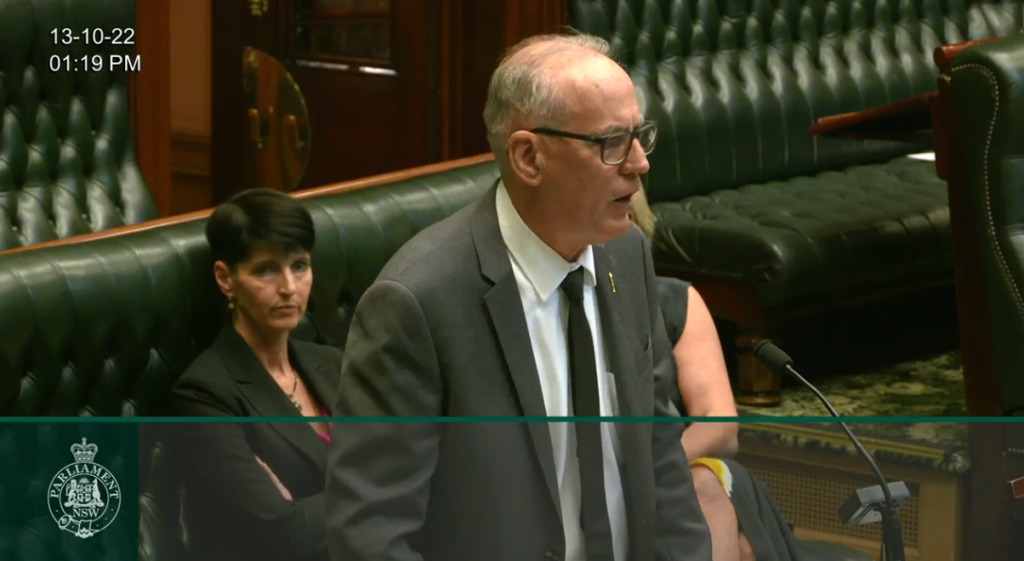
Lake Macquarie MP Greg Piper has introduced the Port of Newcastle (Extinguishment of Liability) Bill to the NSW Parliament, on Thursday afternoon.
The draft legislation is seeking to remove a cap on the Port, signed off by the NSW Government and NSW Ports back in 2013, which imposes financial penalties on Newcastle Port, if it exceeds 50,000 movements per year.
The deal created a monopoly of container handling in the state for Port Botany and Port Kembla.
The Bill received support from Regional Cities NSW, an alliance of over fifteen towns across the state, who are calling for more competitive agreements available for producers accessing international markers.
Mr Piper says while lucrative for the Government’s accounts, the details of those deals were frankly appalling.
“They essentially delivered the operator of Port Botany and Port Kembla a monopoly on container trade. They were designed to lock Newcastle out of diversifying into containers by placing a financial penalty on any container shipped into or out of Newcastle (over a certain cap). That penalty would be collected by the Government and given directly to Botany and Kembla as compensation.
“It was a bad deal, and one the ACCC described as “inherently anti-competitive”. Further, the Productivity Commission recently found that current inefficiencies in the State’s ports are already costing us more than $300m a year.
“I’m not going to sit back any longer and see our region penalised for the next 43 years at a time when we need to diversify our industries and create thousands of new jobs.
“My bill does one thing. It removes the penalty clause from the deeds so Port Of Newcastle can proceed with plans to diversify into containers on a level playing field with Botany and Kembla,” Mr Piper said.
If the Bill is successful, the Government would still need to compensate Port Botany and Port Kembla. Negotiations would be to the government’s discretion.
Mr Piper says that is because there are a number of options available, and some of those will not cost taxpayers a cent.
“More importantly, it must be remembered that it will cost taxpayers, our primary producers, exporters and regional NSW far more to stay in that deal for the next 43 years that it will to get out of it now,” Mr Piper said.

